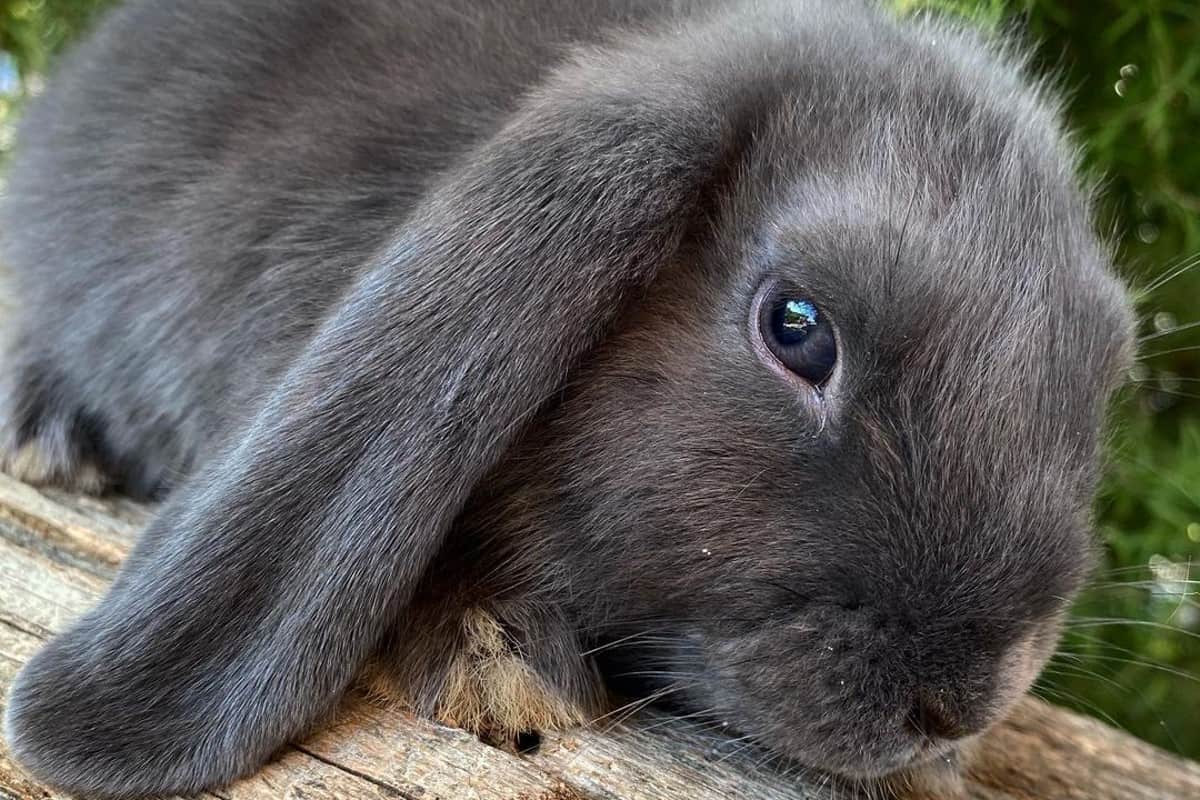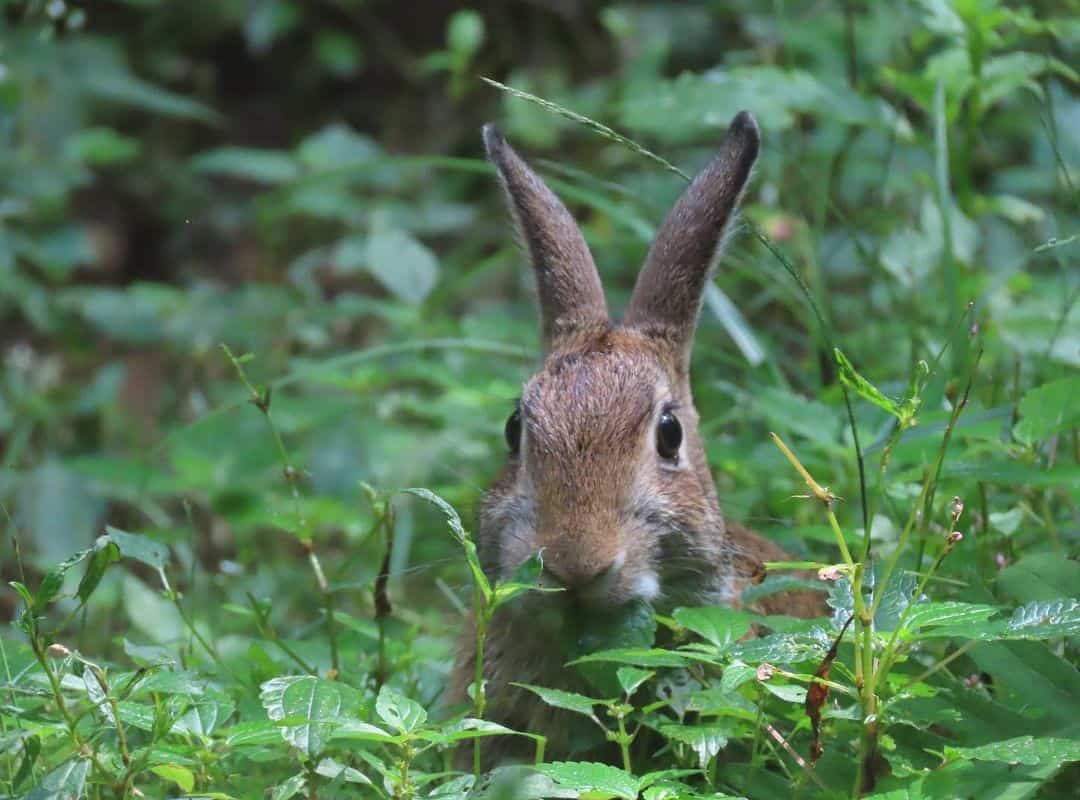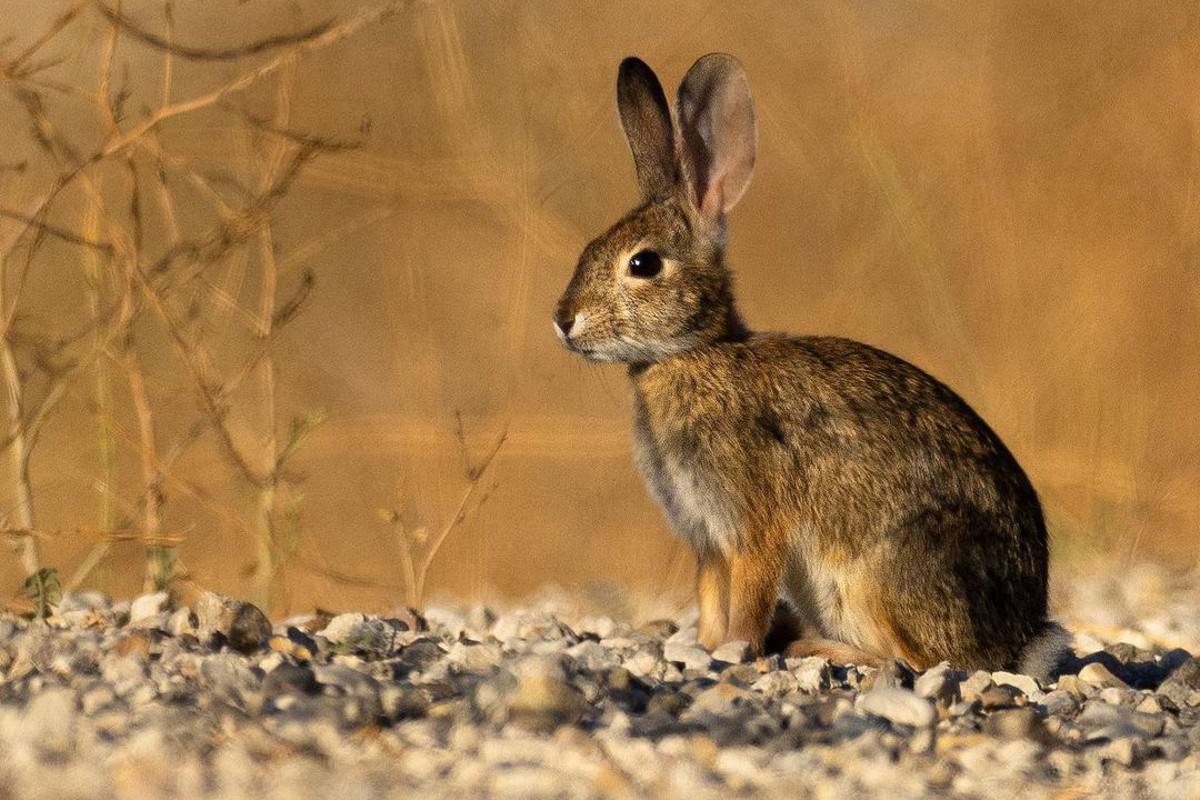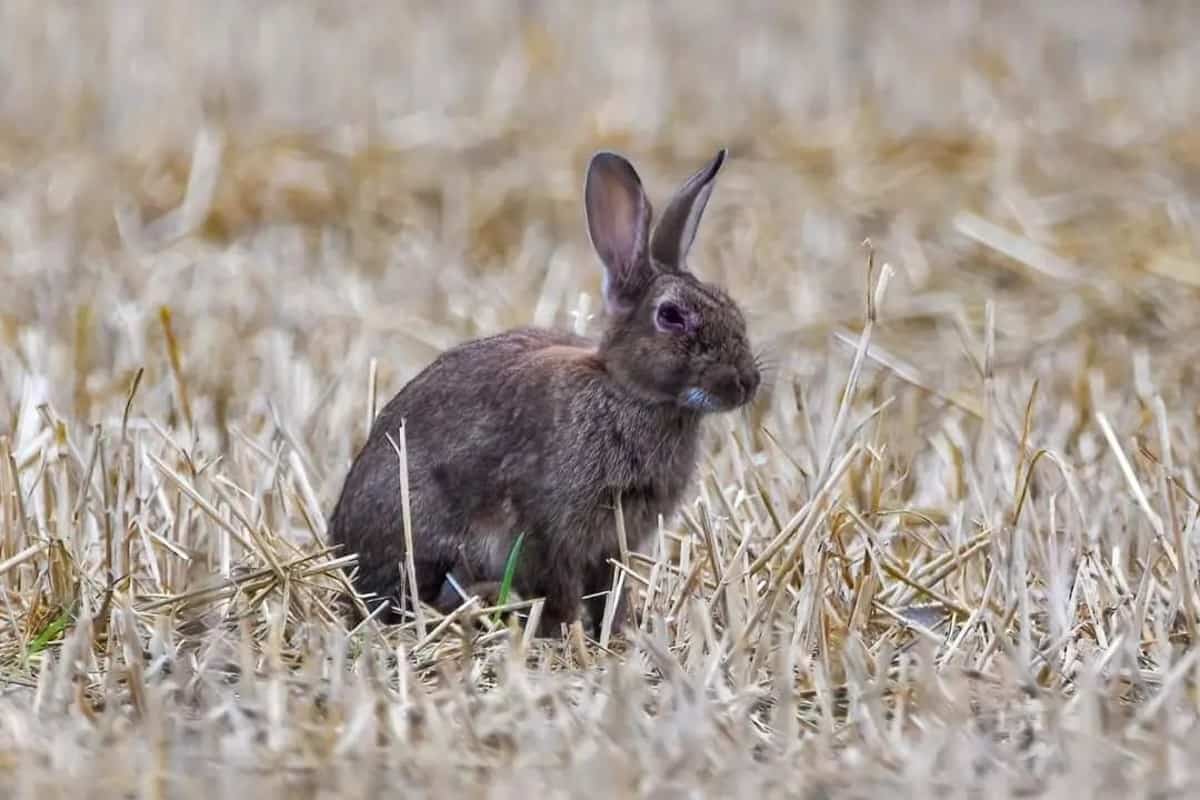Whether domesticated pet rabbits can survive in the wild depends on a number of factors, including the climate, the availability of food and water, and the aggressiveness of local predators.
Generally speaking, pet rabbits that have been spayed or neutered and have lived in captivity are not likely to survive for very long in the wild. They may be vulnerable to attack by other animals, and they may not know how to find food or water.
However, there are some cases where domestic rabbits have been known to adapt to life in the wild. In areas where the climate is mild and there is an abundance of food and water, pet rabbits may be able to find a safe place to live and survive.
In this article, we will discuss can a pet rabbit survives in the wild and how long bunnies live there.
Is it legal to release a domestic rabbit into the wild?
There is no one answer to this question as it depends on where you live. In some places, it is illegal to release domestic rabbits into the wild, while in others it is legal.
Releasing rabbits back into the wild can have serious consequences for the environment and for the rabbits themselves. Domestic rabbits can spread disease to wild rabbits, and they can also compete with wild rabbits for food and habitat. In addition, domestic rabbits may not be able to survive in the wild, and they may end up dying from exposure, starvation, or predation.
If you are thinking about releasing a domestic rabbit into the wild, please consult with your local wildlife authority to find out if it is legal to do so in your area, and if there are any potential risks involved. If it is illegal to release domestic rabbits into the wild in your area, you may need to find a new home for your rabbit.
Can my pet rabbit survive in the wild?
There is a lot of debate over can a domestic rabbit survive in the wild. On one hand, some people argue that it is cruel to set domesticated bunnies free because they are not adapted to living in the wild and will likely die. Others say that it is possible for pet rabbits to live in the wild as long as they have access to food and water, and are given the opportunity to learn how to survive.
There are a number of factors to consider when deciding whether or not to set a pet rabbit free. The first is whether or not the rabbit is healthy and able to survive on its own. Pet rabbits that are spayed or neutered and have been well-socialized are more likely to be able to adapt to life in the wild. Rabbits that have been kept indoors their entire lives may not be able to fend for themselves outside.
Another important factor to consider is the environment where the pet rabbit will be released. Rabbits that are released in an area with plenty of food and water and no predators will have a better chance of survival than those released in a more hostile environment. It is also important to make sure that the rabbit is released in an area where it is legal to have rabbits, or it may be confiscated by animal control.
Ultimately, whether or not a pet rabbit can live in the wild depends on a number of factors. If you are considering releasing your pet rabbit, do your research and make sure that you are making the best decision for the rabbit’s welfare.

What if I can no longer care for my rabbit?
This is a difficult question to answer, as it depends on the individual situation. If you are no longer able to care for your rabbit, you should try to find a new home for him or her as soon as possible. This may be difficult, as there are not many people who are willing to take on a rabbit, but it is important to try to find a new home before you simply give up on your rabbit.
If you are not able to find a new home for your rabbit, you may need to consider surrendering him or her to a shelter. This is not ideal, as shelters are often very crowded and may not be able to provide the best care for your rabbit, but it is better than letting your rabbit go without a home.
Commonly, people cannot provide care for their rabbits anymore because of new pets, children, or allergies. If you are no longer able to care for your rabbit due to any of these reasons, it is important to remember that rabbits are very social animals and should not be kept alone. If you are not able to keep your rabbit, try to find a new home for him or her as soon as possible.
Will My Rabbit Survive If It Escaped?
If your rabbit escapes, will it survive? This is a question that every rabbit owner asks themselves at some point. The answer, unfortunately, is not always a simple one.
There are a few things to consider when answering this question. The first is the climate. If it is very hot or cold outside, your rabbit may not survive. The second is the terrain. If your rabbit escapes into a dangerous area, such as a busy street, it may not make it.
The third factor to consider is the rabbit’s health. If your rabbit is not healthy, it may not be able to survive on its own.
So, will your rabbit escape survive? It depends on the climate, the terrain, and the rabbit’s health. If all of those factors are favorable, your rabbit may very well make it. If any of those factors are unfavorable, however, your rabbit may not survive.

Predators
Rabbits are prey animals, which means they are hunted and killed by other animals for food. Domestic rabbits have a very low chance of surviving in the wild because they are not used to dealing with predators.
Rabbits that are allowed to run outside of their cages or pens are at risk of being killed or injured by wild predators. Coyotes, foxes, and bobcats are some of the predators that pose a threat to pet rabbits.
Even if a rabbit is able to avoid being killed or injured by a predator, it may still become sick or injured from trying to escape. Rabbits that are allowed to run free are also more likely to get lost, which can lead to them dying from exposure or being hit by a car.
For these reasons, it is important to keep pet rabbits inside their cages or pens when they are not being supervised. If you must let your rabbits out, make sure that the area is free of predators and that they are close enough to you that you can easily catch them if they try to run away.
In some parts of the world, rabbits are considered pests
In many parts of the world, pet rabbits are culled as pests. This means that they are killed because they are considered to be a nuisance or a threat to agricultural interests. In some cases, this is because they are known to destroy crops, while in others, it is because they can transmit diseases to livestock.
There are a number of reasons why pet rabbits may be culled as pests. Firstly, they can be extremely destructive to crops, particularly if they are left to roam free. In addition, they can carry a number of diseases that can be transmitted to livestock, which can be costly to farmers. Finally, they can be considered a nuisance due to the noise and mess that they can often produce.
While there is no doubt that pet rabbits can be a nuisance in some cases, it is important to remember that they are also intelligent and social animals. In most cases, they can be easily trained not to damage crops and they can be kept in clean, well-ventilated enclosures to avoid creating a mess. With a bit of effort, pet rabbits can be a wonderful addition to any family and they should not be indiscriminately culled as pests.

Pet Rabbits Have No Traffic Sense
Most rabbits are considered prey animals and as a result, they have a heightened sense of awareness and are constantly on the lookout for danger. This can make them nervous in new or busy environments and can also lead to them becoming easily spooked and running off.
Rabbits are also not very good at judging distances and often overestimate how close a predator or other threat is. This can lead to them running into oncoming traffic or becoming stranded on busy roads.
If you’ve ever been driving down the street and see a rabbit dart out into the road, you know that they have no traffic sense. In fact, rabbits are so bad at judging traffic that they are often hit and killed by cars.
In addition to their poor traffic sense, rabbits are also very curious animals. This curiosity often leads them to explore the edge of the road, even when they know it’s dangerous.
Pet Rabbits Do Not Understand Weather
Rabbits are not built to withstand cold weather. In fact, they can very easily become hypothermic in cold weather and even die. When the temperature drops below freezing, pet rabbits should be brought inside to a warm environment.
Rain and snow can also be dangerous for pet rabbits. Wet fur can lead to hypothermia, and snow can cause rabbits to slip and fall. It is important to keep a close eye on your pet rabbits when the weather is bad and to make sure they have a safe, dry place to stay.
If you live in a cold weather climate, it is important to take steps to keep your pet rabbits safe during the winter. Make sure they have a warm place to stay and be sure to bring them inside when the temperature gets cold.
There Are No Vets In The Wild
Rabbits are popular as pets and, increasingly, as prey for hunting. Domestic rabbits are not well suited to living in the wild and, without intervention by a veterinarian, they are unlikely to survive for long.
Rabbits are prey animals and have many features that make them unsuitable for life in the wild. They are not able to defend themselves against predators, they are not able to regulate their body temperature, and they do not know how to find food and water. Rabbits that are not cared for by a veterinarian are likely to die from exposure, dehydration, or starvation.
Rabbits that are kept as pets should be taken to a veterinarian for regular checkups. A veterinarian can help to ensure that the rabbits are healthy and free of parasites. Rabbits that are not vaccinated against common diseases, such as myxomatosis and calicivirus, are at risk of developing serious illnesses and may die.
If you find a wild rabbit, it is best to leave it alone. Wild rabbits are not used to being around people and maybe scared or aggressive. If you are worried about the welfare of a wild rabbit, contact your local animal shelter or wildlife rescue organization for advice.
How to Prevent a Pet Rabbit from Escaping
Are you the proud owner of a pet rabbit? If so, you’ll want to take some steps to prevent your furry friend from escaping. Here are a few tips to help keep your rabbit safe and secure:
- Make sure your rabbit’s cage is in a room where they can’t escape. The cage should be placed in a quiet area where your rabbit can’t see or hear people or other animals walking around.
- Make sure the cage is secure. The bars should be close together so your rabbit can’t squeeze through.
If you have a pet rabbit, it’s important to keep an eye on them at all times. Rabbits can be very fast and can easily escape if you’re not paying attention. - If your rabbit does escape, don’t panic. Just try to catch them as quickly as possible and put them back in their cage.
- If your rabbit is always escaping from their cage, you may need to consider getting a more secure cage.
Following these tips can help keep your pet rabbit safe and secure.
FAQ
Conclusion
So, can domestic rabbits survive in the wild? The answer to this question is yes, pet rabbits can survive in the wild, but they may not be as successful as wild rabbits. Pet rabbits may not be as fast or as agile as wild rabbits, and they may not be as good at hiding from predators. Frankly speaking, their chances of survival are way, way lower than those of wild rabbits.
Also read:
- Discover the Amazing World of 10 Day Old Bunnies: All About Rabbits!
- Discover All About the Characteristics of a 1 Year Old Rabbit
- Why Doesn’t My Rabbit Like Me? – Understanding Rabbit Behavior for All About Rabbits
- Everything You Need to Know About Bunny Grinding Teeth in Rabbits
- How Eating Poop is Part of a Normal Rabbit Diet – All About Rabbits
References
- Predator | WikipediA – https://en.wikipedia.org/wiki/Predation
- Rabbits | WikipediA – https://en.wikipedia.org/wiki/Rabbit
